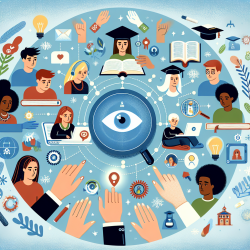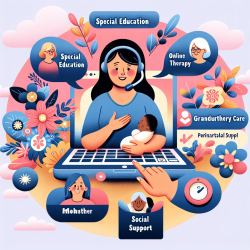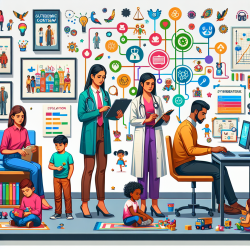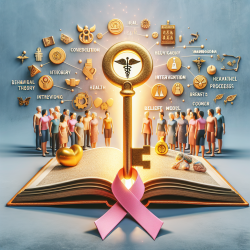In the realm of special education and therapy, the pursuit of knowledge and professional development is unending. As practitioners, we constantly seek ways to enhance our understanding and refine our skills to better serve our students. This drive for improvement brings us to the invaluable resource, "Language-Related Learning Disabilities: Their Nature and Treatment" by Adele Gerber. The insights and recommendations contained within this research article offer a comprehensive guide for practitioners aiming to elevate their expertise in addressing language-related learning disabilities (LLDs).
The multifaceted nature of LLDs presents a unique challenge to educators and therapists alike. These disabilities can significantly impact a student's ability to communicate effectively, comprehend language, and engage with educational content. The research compiled by Gerber and her team provides a solid foundation for understanding the complexities of LLDs and offers practical strategies for intervention.
Understanding the Complexity of LLDs
The first step in effectively addressing LLDs is to understand their nature and how they affect learning. Gerber's research highlights the importance of recognizing the various dimensions of language processing and acquisition. By delving into the normal processes related to language and learning, the article reviews theories of language acquisition and components of language competence. This foundational knowledge is crucial for practitioners to identify and assess language-related challenges accurately.
Strategies for Effective Intervention
One of the key contributions of Gerber's work is the comprehensive overview of intervention strategies. The article emphasizes the need for a personalized approach, recognizing that each student's challenges are individual. It covers a range of intervention areas, including syntax, morphology, phonology, semantics, and pragmatics. Practitioners are encouraged to draw from this wealth of knowledge to tailor their interventions to meet the specific needs of their students.
Furthermore, the research discusses the cognitive and psychosocial correlations of LLDs, providing a holistic view of the students' experiences. Understanding these correlations is essential for developing interventions that not only address language deficits but also support the student's overall well-being.
Collaboration and Service Delivery
Gerber's article also underscores the importance of collaborative and interdisciplinary approaches in delivering services to students with LLDs. It advocates for the integration of speech-language pathologists, educators, reading specialists, and psychologists in the assessment and intervention process. This collaborative effort ensures a comprehensive understanding of the student's needs and fosters a supportive learning environment.
The section on service delivery models offers practical guidance on how to effectively implement intervention strategies within educational settings. It discusses the value of functional-pragmatic assessment models and highlights various procedures that can be adapted for individual or group interventions.
Practical Applications and Continuing Education
For practitioners looking to apply the outcomes of Gerber's research, the article serves as a practical guide filled with actionable recommendations. It encourages the use of the discussed strategies in daily practice and highlights the importance of continuous learning and adaptation.
Moreover, the article's emphasis on the necessity for further research in the field of LLDs serves as a call to action for practitioners. It encourages them to engage in ongoing professional development and contribute to the expanding body of knowledge on language-related learning disabilities.
In conclusion, "Language-Related Learning Disabilities: Their Nature and Treatment" is an essential resource for practitioners seeking to enhance their understanding and skills in addressing LLDs. The comprehensive overview of the nature of LLDs, coupled with practical intervention strategies and the emphasis on collaborative service delivery, provides a solid foundation for improving student outcomes.
As we strive to meet the diverse needs of our students, let us embrace the insights and recommendations offered by Gerber and her team. By implementing these strategies and committing to ongoing professional development, we can make a meaningful difference in the lives of students with language-related learning disabilities.
To read the original research paper, please follow this link: Language-Related Learning Disabilities: Their Nature and Treatment.










